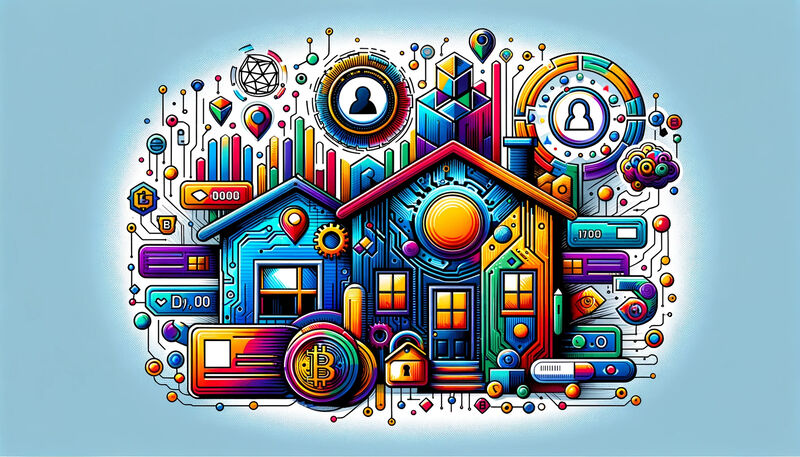NFTs Beyond Art: Expanding into Real Estate and Identity

Non-Fungible Tokens (NFTs) have surged in popularity, primarily within the art world, revolutionizing how we perceive ownership and value in the digital realm. However, the utility of NFTs extends far beyond digital art and collectibles. This article explores the burgeoning roles of NFTs in sectors like real estate and digital identity, illustrating their potential to transform these industries fundamentally.
NFTs in Real Estate
The real estate sector is beginning to leverage NFTs to tokenize properties and land, enabling a new paradigm in property ownership and investment. Through NFTs, real estate can be bought, sold, or traded more efficiently, with transactions recorded transparently on the blockchain.
Tokenization of Property: By representing physical properties as NFTs, real estate transactions become more accessible, faster, and less encumbered by traditional bureaucratic hurdles. This digitization can broaden investment opportunities, allowing for fractional ownership and global participation.
Smart Contracts: NFTs in real estate are often tied to smart contracts, automating various aspects of the transaction process, such as escrow and title transfers, enhancing efficiency and reducing the potential for disputes or fraud.
NFTs in Digital Identity
In the realm of digital identity, NFTs offer an innovative approach to privacy and ownership. By representing individual identities as NFTs, users can gain more control over their personal data and how it's shared online.
Self-Sovereign Identity: NFTs can facilitate a self-sovereign identity model, where individuals own and control their identity without relying on centralized authorities. This model enhances privacy and security in the digital space.
Verifiable Credentials: NFTs can be used to represent credentials, qualifications, or other personal attributes in a verifiable and tamper-proof manner, streamlining processes that require identity verification or background checks.
Challenges and Future Directions
While NFTs in real estate and digital identity are promising, they are not without challenges. Issues related to regulatory compliance, standardization, and public understanding must be addressed to realize their full potential.
Moreover, as NFTs become more integrated into these sectors, stakeholders must remain vigilant about security and privacy concerns, ensuring that the technology enhances user autonomy without compromising safety.
Conclusion
NFTs are proving to be a versatile and powerful tool, extending their reach beyond the art world to impact real estate, digital identity, and more. As we explore these new applications, NFTs stand poised to redefine ownership, investment, and identity in an increasingly digital world.

